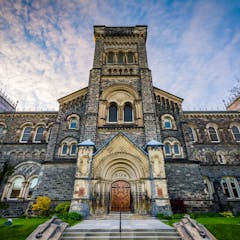
Articles on Canadian universities
Displaying all articles

When universities do use fair dealing to supplement purchased, licensed and freely available resources, they work within guidelines developed across the education sector.

When universities are seen as favouring one position on the Palestine/Israel issue, their ability to uphold academic freedom as a fundamental tenet of democracy is jeopardized.

Forcing universities to only serve the needs of the labour market undermines their abilities to educate students and conduct research.

Through the Scarborough Charter, many Canadian universities committed to fostering alternative ways of knowing. But more must be done to realize that commitment.

In addition to undermining universities’ and faculty members’ autonomy, the bill blurs distinctions between free expression and academic freedom, and turns academic freedom into a political weapon.

It has been an uphill battle to make the case for Black studies courses and programs in Canadian universities.

Students won’t be allowed to participate in activities at St. Francis Xavier University this fall unless they sign a COVID-19 waiver. That’s forcing them to make a difficult and unfair choice.

Those teaching in publicly funded universities should be held accountable for denying the public record, whether in their classrooms or beyond.

In his new book “University Commons Divided,” former University of Saskatchewan President Peter MacKinnon examines the attack on freedom of expression at Canadian universities.
